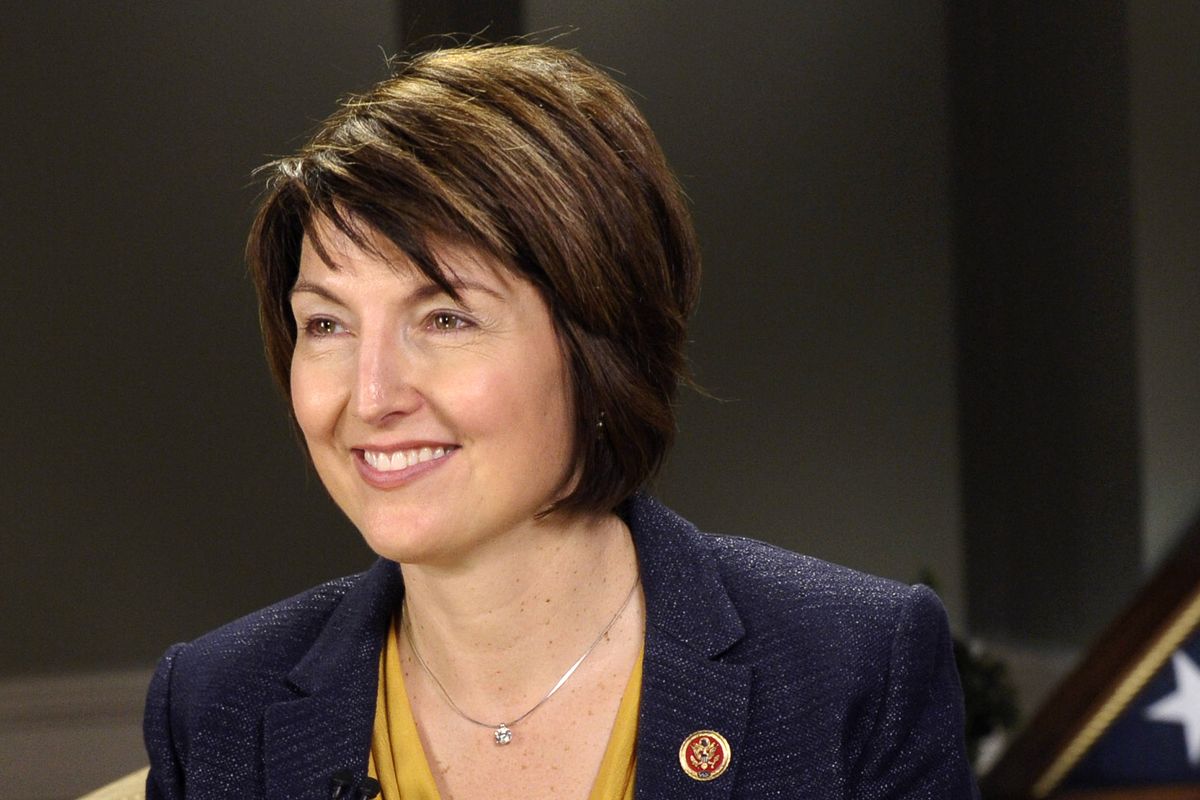McMorris Rodgers faces three challengers in August primary

When a member of Congress rises to leadership and is chosen to respond to a president’s State of the Union Address, it’s usually a sign he or she is well-regarded and secure in re-election.
For Cathy McMorris Rodgers, an Eastern Washington Republican seeking her sixth term in the House of Representatives, being in leadership and providing the GOP response to President Barack Obama’s State of the Union Address are things for her primary opponents to criticize as they scramble to survive next month’s primary.
They are three men with very different resumes and little or no experience in general elections. Each hopes to be the other candidate besides McMorris Rodgers to get through the top-two system for a head-to-head matchup.
Two face long odds in getting that chance, if precedent is any guide.
Dave Wilson, an outspoken independent who uses words like dysfunctional, gridlocked and broken to describe Congress, may give voice to the nation’s growing dislike for the partisan politics reflected in voter polls.
“Everyone I talk to is fed up,” said Wilson, 59, who built and then sold a computer training school and has launched an aggressive sign campaign. He wants to go to Congress as an independent and form a caucus with centrist Democrats and mainstream Republicans to break the gridlock.
History suggests his quest may be quixotic. Although many state and district residents describe themselves as independent in voter surveys, no independent or third-party candidate has survived a congressional primary if the two major parties had a candidate in the race since the state adopted its current top-two system. The last Washington congressman who wasn’t a Democrat or Republican left office in 1915.
Tom Horne, a volunteer firefighter and retired engineer, has an equally steep hill to climb. As the other Republican in the race, he’s positioned himself as more conservative than McMorris Rodgers and more willing to challenge Obama, whom he accuses of trying to operate a banana republic.
“She gave a Miss Congeniality speech,” Horne, 65, said of the incumbent’s televised response to Obama in January. “My reply would have been push back, not Pablum.”
State primary law allows two members of the same party to run in the general election if they finish first and second in the primary, but that mainly happens in primaries featuring candidates from one party.
Joe Pakootas would seem to have the clearest path through the primary as the sole Democrat in the race. But Eastern Washington’s 5th Congressional District has become increasingly Republican in the 20 years since voters ousted Democratic House Speaker Tom Foley. Outside of Spokane County, there are no legislators and few county officials with a D after their name.
But Pakootas, 56, is a Democrat with an unusual resume. He’s served on the Colville Tribal Council and as tribal chairman. He and his family operate a gas station and convenience store in Inchelium, and as chief executive officer, he turned the corporation that runs its many tribal businesses into a profitable enterprise.
“I’m not a career politician,” he said. “Unlike my opponent, I have experience managing employees and making tough decisions.”
He’s trying to stack his work record up against the 45-year-old incumbent, who spent 10 years in the Legislature before Congress, and was a legislative aide before that.
He also has some environmental credibility as a named plaintiff in the lawsuit to force a Canadian mining company to clean up waste being dumped into the Columbia River and flowing into the United States. But he wasn’t well-known in Spokane, the district’s Democratic stronghold, before announcing his candidacy, and primaries often turn on name recognition.
All three challengers criticize House Republican efforts to repeal the Affordable Care Act. Pakootas supports the landmark legislation; Horne and Wilson oppose what they call Obamacare but are critical of the unsuccessful tactic.
McMorris Rodgers, meanwhile, is stepping up efforts to counter suggestions she’s part of a do-nothing Congress, pointing out legislation the Republican-led House has passed that could mean jobs in Eastern Washington. One example she noted is an overhaul of workforce training policy along with new rules for spending federal money provided to states for job training programs. It passed the House last year on a partisan vote, was reworked in the Senate and was approved this month with strong bipartisan support in both chambers.
“We’ve passed countless bills to create jobs and help people bring home paychecks yet the Senate refuses to touch them,” she said last week. “Now we need the Senate to act on more of them.”
Last month, when Majority Leader Eric Cantor, the House Republicans’ No. 2 and heir apparent to the speakership, lost his primary, McMorris Rodgers didn’t join the scrum trying to move up in the leadership ranks. Instead she announced she’d remain as GOP Conference chairwoman, the No. 4 position, and support Rep. Kevin McCarthy of California for Cantor’s old job.
A few days after his selection, McCarthy said he’d allow the Export-Import Bank to close this fall rather than renew its charter and Speaker John Boehner wouldn’t commit to a vote on it. McMorris Rodgers had to walk a fine line between leadership and the rest of the Washington delegation – Republicans included – who urged reauthorization of an institution they view as vital to the nation’s most-trade-dependent state. The Ex-Im Bank should be reauthorized, she said, but only if it undergoes serious reforms that ensure more businesses, over a wider spectrum of industries, benefit.
McMorris Rodgers has collected $3,000 from the state’s biggest exporter and major Ex-Im supporter Boeing, but that’s a small fraction of the $1.3 million she’d raised as of March 31, the last deadline for reports to the Federal Elections Commission. By comparison, Pakootas reported $72,000, much of it from tribal sources, and Wilson $13,000. Horne, who didn’t enter the race until May, said Friday he’s raised $255 in contributions and spent about $3,000 of his own money.